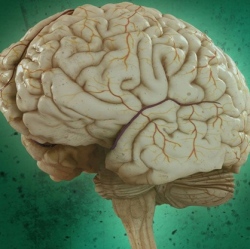
Newly published research, from a group based in Wisconsin, suggests a link between the bacterial content of the gut with the onset of Alzheimer’s disease (AD). Although the link has been made in animal models previously, this is the first time the ‘microbiome’ (a person’s full gut bacterial profile) has been substantially characterised in humans.
The group found that AD patients had a distinct composition of bacteria with reduced range of bacterial diversity compared to age and sex matched counterparts. These results also correlated with cerebrospinal fluid markers of AD taken from the same patients.
This study utilized the analysis of faecal samples from 25 Alzheimer’s patients and 25 age matched controls to characterise the bacterial contents of the microbiome. This allowed for a non-invasive assessment of disease risk factors and may offer an early diagnostic and prognostic marker for the disease.
The bacterial content of the gut is established from an early age and remains relatively stable throughout life. Although the microbiome is stable, there are vast differences in bacterial composition from person to person, which could be useful in attributing certain bacteria to Alzheimer’s disease in future follow up studies.
The gut microbiome content is extremely complex, harbouring more bacteria than there are actual cells in the body.
Although the microbiome may seem to be an obvious player in diseases like irritable bowel disease, it also has key roles in the synthesis of vitamins, priming of the immune system and protection against pathogen outgrowth.
The decreased microbiome diversity discovered in AD patients in this study correlates with findings for multiple other diseases; including irritable bowel disease, diabetes and Parkinson’s disease. In fact, one of the reduced bacteria classes linked to onset of AD in this study, Firmicutes, has also been linked to the onset of both obesity and type-II diabetes.
Previous research has paved the way for this study, with animal models indicating that the gut bacterial content may affect the production of amyloid, the protein plaque hallmark of AD. Additionally, a previous human study has shown increased pro-inflammatory and decreased anti-inflammatory levels of bacteria in Alzheimer’s disease patients’ microbiota.
Collectively, these findings suggest that there has been a distinct lack of investigations into the role of gut bacteria in AD. The authors have outlined the future for their research, with additional animal experiments and a longitudinal study with human samples being crucial to establishing the true effect of the microbiome on AD onset and progression.
The current work could subsequently lead to targeting the microbiome therapeutically in order to treat, or better yet, prevent the onset of the disease. This could potentially be achieved by finding ways to increase the bacteria missing from AD patients or even from deciphering the metabolites which these bacteria produce.
